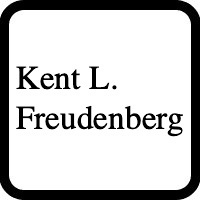 Pueblo Foreclosure Lawyers, Colorado
Pueblo Foreclosure Lawyers, Colorado
Not enough matches for Pueblo Foreclosure lawyer.
Below are all Pueblo Real Estate lawyers.
Sponsored Lawyers
1-10 of 46 matches
Divorce & Family Law, Real Estate, DUI-DWI
Kent Lee Freudenberg is a practicing lawyer in the state of Colorado.
(more)Business, Real Estate, Estate Planning, Litigation, Intellectual Property
Attorney Terence E. Doherty provides knowledgeable, experienced representation while ensuring that clients receive the individual access and personal relationships they desire. Mr. Doherty understands the importance of legal decisions, and strives to provide all necessary information to his clients to help them make advised decisions. As an attorney and counselor, Mr. Doherty educates his clients so that they understand the legal process, while providing sound services to benefit themselves, their business, or their families. Mr. Doherty’s approach is client centered and results driven. Mr. Doherty is committed to responding to client questions as soon as possible and is readily available for your legal needs. We hope not only to represent you in times of need, but also to work with you to build lasting relationships of mutual confidence and trust. We take great pride in living up to our core values of honesty, responsiveness, and professionalism. Mr. Doherty’s practice provides the highest quality legal services to both companies and individuals in the areas of business and corporate law, real estate law, estate planning, litigation, and intellectual property.
(more)Car Accident, Workers' Compensation, Premises Liability, Personal Injury, Accident & Injury
Alex Kerr is the owner of Bradford Pelton, P.C., a journey that began when he first clerked at the firm. After graduating law school and working as an associate attorney, Alex took over ownership in January 2021. With deep expertise in personal injury law, Alex is dedicated to guiding his clients through every step of the legal process, from the initial claim to trial, ensuring they receive the justice and compensation they deserve. Alex takes each case personally, understanding that an injury impacts every aspect of a client’s life. His commitment to his clients goes beyond legal representation—he genuinely cares about their well-being and works tirelessly to protect their interests. Whether he’s fighting those responsible for causing injury or holding insurance companies accountable for their contractual obligations, Alex is relentless in his pursuit of fairness and justice. His passion for law extends into other areas, including his constitutional law podcast, where he shares his insights with a broader audience. When he’s not working, Alex focuses on maintaining a healthy lifestyle through fitness, enjoys reading, and treasures time spent with his family. His personal and professional lives are guided by integrity, dedication, and a genuine desire to help others.
(more)






